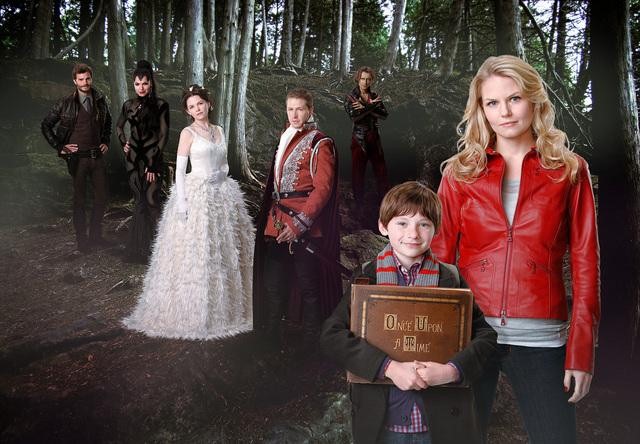

Rick and Cliff are basically nonentities, the only difference being that easy-going Cliff has no ego to bruise, no ambition to nurse.
#One upon a time pilot ign review tv
Lena Dunham plays one of the acolytes, incidentally, casting which may be a subliminal reminder of the title both of Dunham’s famed TV show Girls, and Emma Cline’s novel about Manson’s followers. Cliff makes an impassive appearance at this creepy compound and Tarantino audaciously makes this a kind of western-thriller episode, as Cliff makes a social call on the owner, George Spahn (Bruce Dern).

#One upon a time pilot ign review movie
In tandem with the eerie resurgence of Rick’s self-worth, Cliff finds himself giving a lift to a hippie girl out to the Spahn Ranch, that actual movie location which Tarantino imagines to be the place where Cliff and Rick shot films together and which was, of course, the real-life chilling headquarters of the Charles Manson cult. Apart from everything else, he is inspired by the fact that he lives next door to Sharon Tate (Margot Robbie) and Roman Polanski (Rafal Zawierucha), of whom he is entirely in awe. But in the interim and on the basis of Rick’s boisterous turn on an episode of FBI, Schwarz gets him a job on a western TV show in America, Lancer, with Sam Wanamaker directing, and Rick has a weird epiphany. His agent Marvin Schwarz (an uproarious cameo for Al Pacino) tries persuading Rick to head out to Italy to reinvent himself in these new “spaghetti westerns” they have out there. Things head south for Rick and Cliff’s careers when Rick’s western TV show Bounty Law is cancelled. Cliff has to drive Rick everywhere because he has lost his licence, and he is Rick’s best pal, assistant, factotum, and the person who has to straighten Rick when he bursts into boozy tears of self-pity. Cliff is Rick’s stunt double and has an awful secret in his life: a grisly event for which he may or may not be guilty. His best friend – pathetically, his only friend – is Cliff Booth, played by Brad Pitt in his Ocean’s-Eleven mode of easygoing competence and imperturbability. Our first non-hero is Rick Dalton, played by Leonardo DiCaprio, a failing cowboy actor and alcoholic going to seed in the autumn of his career and in moments of bad temper beginning to resemble Jack Black. Quite simply, I just defy anyone with red blood in their veins not to respond to the crazy bravura of Tarantino’s film-making, not to be bounced around the auditorium at the moment-by-moment enjoyment that this movie delivers – and conversely, of course, to shudder at the horror and cruelty and its hallucinatory aftermath. And maybe worrying about taste is to miss the point of this bizarre Jacobean horror fantasy.

But certainly any ostensible error of taste is nothing like, say, those in the much admired Inglourious Basterds. Opinions are going to divide about this film’s startling and spectacularly provocative ending, which Tarantino is concerned to keep secret and which I have no intention of revealing here. But there’s something new here: not just erotic cinephilia, but TV-philia, an intense awareness of the small screen background to everyone’s lives. The Los Angeles of 1969 is recovered with all Tarantino’s habitual intensity and delirious, hysterical connoisseurship of pop culture detail. It’s shocking, gripping, dazzlingly shot in the celluloid-primary colours of sky blue and sunset gold: colours with the warmth that Mama Cass sang about. Q uentin Tarantino’s exploitation black-comedy thriller Once Upon a Time … in Hollywood finds a pulp-fictionally redemptive take on the Manson nightmare in late-60s California: a B-movie loser’s state of grace.


 0 kommentar(er)
0 kommentar(er)
